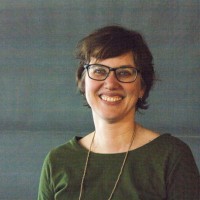“When I was a child, I listened to stories from a pastor who would visit our school each year to tell about the poor children in Suriname,” Karen Kammeraat said. “So I donated year after year, and still I kept seeing pictures of poor children.” So she decided something had to change.
Kammeraat studied at TU Delft, where she majored in Industrial Design Engineering. After finishing her studies she started out working for a company where she helped build a database containing rules and regulations for exporters and producers in developing countries. Her affinity with the developing world has only grown since then, working as a freelance consultant in Tanzania and for Oxfam Novib.
Kammeraat wanted to understand why poverty continued despite the large amount of charity. What she found was that there was a vicious cycle. The big corporations only paid a small amount to the actual producers, far too little for these producers to lead a decent life. “We have to change, because we live at the expense of others,” she explained. “I do not want to contribute to this anymore.”
Kammeraat decided to do research, to be more selective about what she spends her money on. “It is not easy to figure out exactly which companies pay a good price to producers.” Food and drink were the first products she focussed on, before moving on to clothes. “For clothing it was much more difficult to find out, as companies can be misleading.” Though it might seem like a tough task, Kammeraat is convinced change is possible. “By myself I will not be able to do much, but together we can make a difference.”

